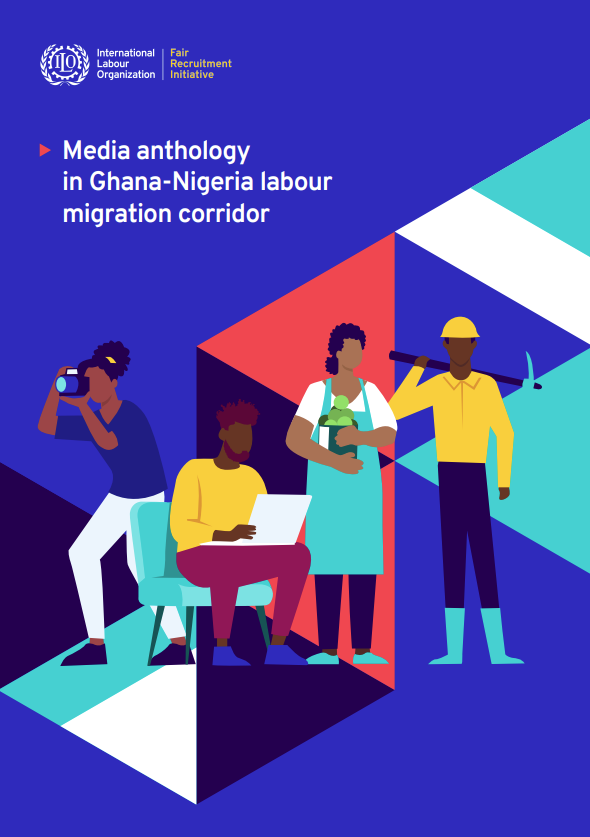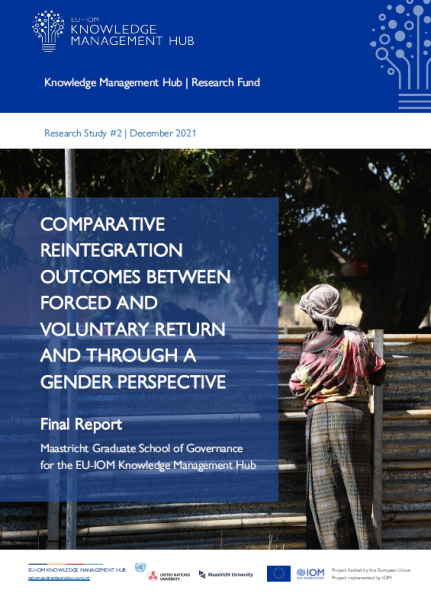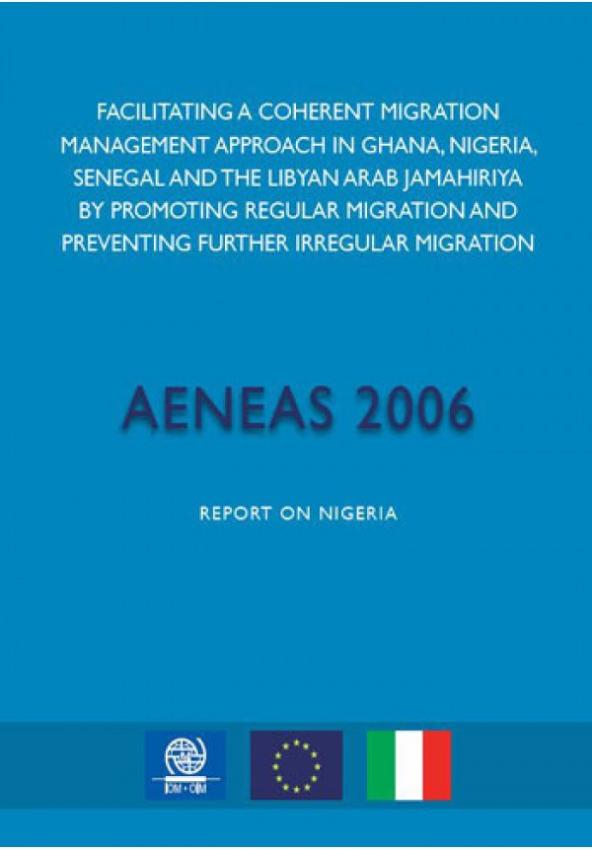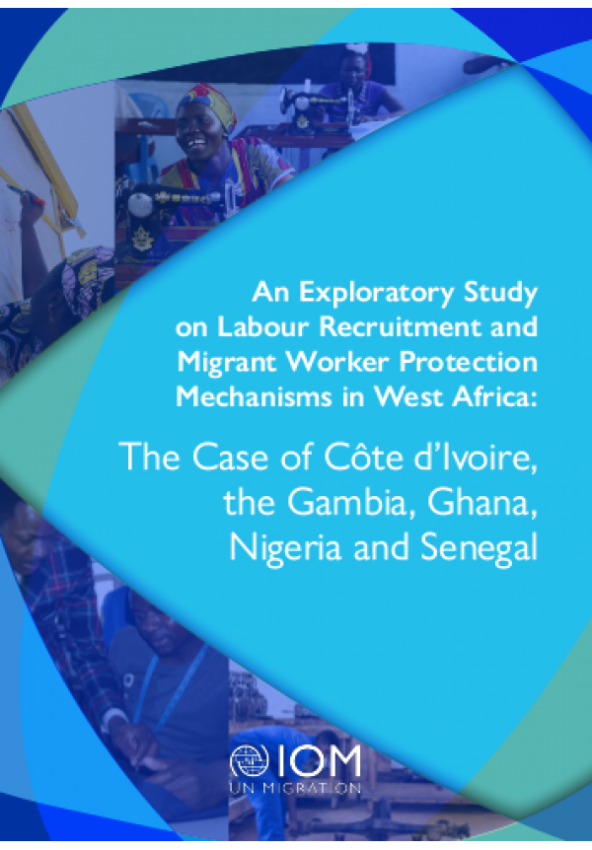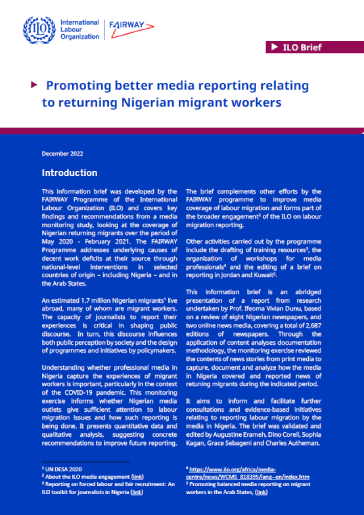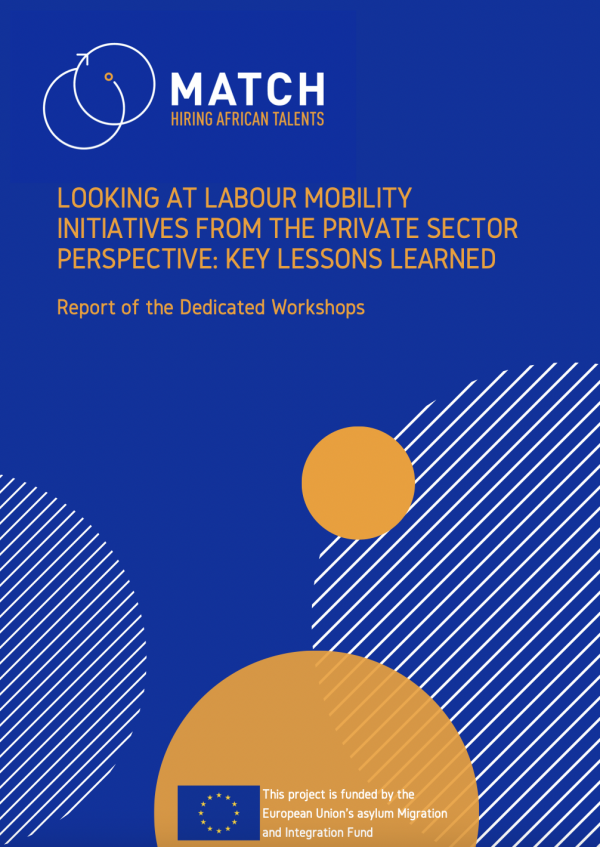Media anthology in the Ghana-Nigeria labour migration corridor
This media anthology is the result of a unique collaboration between journalism students from the University of Media, Arts and Communication (UNIMAC) in Ghana and Pan-Atlantic University (PAU) in Nigeria. Through a joint exploration of reporting on labour migration across the Ghana–Nigeria corridor, the students have produced an insightful body of work that reflects the complexity of labour migration in West Africa, highlighting the many facets of this topic through different narratives formats and co-produced by teams of students from both institutions.
Supported by the International Labour Organization (ILO), this initiative seeks to foster cross-border collaboration in journalism, enabling future media professionals from both origin and destination countries to portray the full spectrum of the migration experience, beyond the limited perspectives often found in international media. Through such partnerships, including the twinning of journalism schools, the ILO is investing in the next generation of journalists, equipping them to produce quality reporting on labour migration.
Type of document :
Country/Region : ,
Year of publication :
Theme :
ECOWAS and Partners Advance Labour Migration Data Systems at Regional Meeting in Nigeria
Posted at December 3rd 2025 12:00 AM | Updated as of December 3rd 2025 12:00 AM
Region/Country :
|Themes : ,
Strengthening Solidarity and Safeguarding Rights – A Peer Learning Journey Between Ghana and Nigeria
Posted at April 8th 2025 12:00 AM | Updated as of April 8th 2025 12:00 AM
Region/Country : ,
|Themes : , , , ,
Comparative Reintegration Outcomes between Forced and Voluntary Return and Through a Gender Perspective
This report presents the outcomes of two combined research projects: 1) “Comparative reintegration outcomes in forced and voluntary returns”, and 2) “Understanding and implementing gender-sensitive sustainable reintegration”. The aims of these projects were to study differences in reintegration outcomes between forced and voluntary returnees, and male and female returnees in various return contexts and by identifying other factors that affect reintegration outcomes at the individual, community and structural level.
The projects were commissioned by IOM under the EU-IOM Knowledge Management Hub, funded by the European Union, and designed and implemented by a research team based at the Maastricht Graduate School of Governance (MGSoG), Maastricht University.
Research for this report was conducted in six countries (Afghanistan, Bangladesh, El Salvador, the Gambia, Nigeria and Somalia), using a mix of methods. The methodology consisted of the analysis of quantitative data collected by IOM country missions and the research team using the RSS tool, and the analysis of qualitative data collected through in-depth interviews with returnees, family members of returnees and key informant interviews.
Type of document :
Country/Region : , , , , , , , ,
Year of publication :
Theme :
National Assessment of Labour Migration Policies, Legislation, Practices, and Structures in Nigeria
Nigeria, with over 140 million inhabitants, is a country of origin, transit, and destination for diverse migratory configurations, both internal and international – seasonal labour migration, undocumented or irregular migration, internal displacements, human trafficking, female migration, and migration of skilled professionals. There is a general lack of current information on demographic dynamics in the country, however, particularly concerning data on both stocks and flows of migrants within and outside the country.
In this context, this report covers data collection and analysis, which looks at data sources on international migration and intraregional migration, with emphases on Nigerian migrants and migrant workers. There is an overview of recruitment and support services, as well as policy formulation and challenges. International structures and inter-institutional collaboration are discussed based on an in-depth evaluation of the institutional structures in Nigeria. In addition, a background of migrants’ remittances and forms of remittances are analysed, taking into consideration remittance flows and uses, as well as the policy measures necessary to enhance the impact of remittances.
Moreover, the report covers the current national legislation and international norms regarding labour migration and the bilateral agreements existing between Nigeria and other African countries. In conclusion, recommendations have been provided on all the relevant issues contained in the report pertaining to data collection, recruitment and support services, institutional structures and inter-institutional collaboration, migrants’ remittances, and national legislation and international norms in order to formulate a comprehensive action plan detailing the way forward for labour migration management in Nigeria.
Type of document :
Country/Region : ,
Year of publication :
Theme : , , ,
An Exploratory Study on Labour Recruitment and Migrant Worker Protection Mechanisms in West Africa: The Case of Côte d'Ivoire, the Gambia, Ghana, Nigeria and Senegal
The topics of ethical recruitment, defined as the recruitment of workers in a lawful, fair and transparent manner that respects their dignity and human rights, and labour migration, defined as the movement of persons from one State to another, or within their own country of residence, for the purpose of employment, go hand in hand. While labour migration can serve as a significant opportunity, it can also constitute a risk for those who partake in it. A risk may present itself if labour migration is undertaken as an end result of unethical recruitment practices, which may include practices that are non-transparent and fail to respect the dignity as well as human rights of workers. In such circumstances, workers may be at risk of exploitation during both the recruitment process and employment. Consistent adherence to ethical recruitment practices by all parties implicated in the recruitment process (including private recruitment agencies, employers and jobseekers) therefore significantly contributes to the reduction of these risks.
In West Africa, this correlation is particularly relevant as young West African migrants attracted by false promises of employment, high wages and decent working and living conditions are increasingly subjected to exploitative recruitment processes. Through this study, IOM seeks to shed light on this situation by assessing current recruitment practices and migrant worker protection mechanisms in place in the following case study countries: Côte d’Ivoire, the Gambia, Ghana, Nigeria and Senegal. This study explores and critically examines the existing evidence base on key aspects of the topic to inform potential policy and programmatic responses designed to enhance labour migration impacts for current and potential migrant workers located in as well as originating from West Africa. This publication entails both a desk-based review of the current published evidence base as well as insights derived from interviews with national stakeholders from the five case study countries.
This research publication was made possible through support provided by the Migration Resource Allocation Committee (MIRAC).
Type of document :
Country/Region : , , , , ,
Year of publication :
Theme : , , ,
Promoting better media reporting relating to returning Nigerian migrant workers
This information brief was developed by the FAIRWAY Programme of the International Labour Organization (ILO) and covers key findings and recommendations from a media monitoring study, looking at the coverage of Nigerian returning migrants over the period of May 2020 - February 2021.
Type of document :
Country/Region :
Year of publication :
Theme : , ,
ILO Strengthens Capacity of Media and Civil Society Organizations for Effective Reportage and Engagement in the area of Forced Labour and Fair Recruitment in Nigeria
Posted at September 1st 2021 12:00 AM | Updated as of September 1st 2021 12:00 AM
Region/Country :
|Themes : ,
Looking at Labour Mobility Initiatives From the Private Sector Perspective: Key Lessons Learned.
The present report presents a summary of the views expressed by companies from the private sector established in the four EU Member States participating to the MATCH project which seeks to address workforce challenges by enabling young professionals from Nigeria and Senegal to work for companies in Belgium, Italy, Luxembourg or the Netherlands. The perspectives of the private sector were gathered through on-line awareness raising sessions and dedicated workshops aiming at highlighting the benefits of legal pathways for migration and skills partnerships with Africa. Careful listening and dialogue with companies allowed the project partners to better understand the concerns and motivations of companies in joining a project such as the MATCH project. Together with surveys and data collection, exchanges with companies are also deemed to be essential to follow closely the evolution of the labour market and stay agile to unexpected developments.
Type of document :
Country/Region : , , , , ,
Year of publication :
Theme :
Subscribe to the Fair Recruitment Initiative Newsletter
Sign up to receive news delivered to your inbox.

